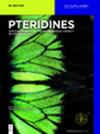Inflammation, iron and vitamin D metabolism in different cardiomyopathy aetiologies
IF 0.9
4区 医学
Q4 BIOCHEMISTRY & MOLECULAR BIOLOGY
引用次数: 2
Abstract
Abstract Immune activation coincides with disturbances in iron and vitamin D metabolism in patients with cardiomyopathy. In this study, we investigated whether there are differences regarding immune activation, iron and vitamin D metabolism between the different cardiomyopathy aetiologies. Patients and methods: Parameters of iron metabolism (haemoglobin, iron, transferrin, transferrin saturation, ferritin, hepcidin), vitamin D metabolism (Ct-FGF23, parathormone, phosphate, vitamin D) and immune activation (C-reactive protein and neopterin) were determined in 149 patients (98 men, 51 women) with non-ischaemic cardiomyopathy. Results: Patients with amyloid cardiomyopathy presented with higher neopterin, ferritin and hepcidin levels than other cardiomyopathy aetiologies. Furthermore, they showed the highest rate of cardiovascular events. C-reactive protein levels were significantly higher in patients with inflammatory cardiomyopathy. Patients with virus positive cardiomyopathy presented with significantly higher ferritin and Ct-FGF23 levels compared to patients with virus negative inflammatory cardiomyopathy. Conclusion: This study indicates that there are some differences regarding the extent of immune activation and inflammation as well as alterations in iron metabolism disorders between different cardiomyopathy aetiologies. Further studies with larger patient cohorts are needed to investigate these findings more precisely.炎症、铁和维生素D代谢在不同心肌病病因中的作用
摘要心肌病患者的免疫激活与铁和维生素D代谢紊乱相吻合。在这项研究中,我们调查了不同心肌病病因之间在免疫激活、铁和维生素D代谢方面是否存在差异。患者和方法:测定149名非缺血性心肌病患者(98名男性,51名女性)的铁代谢参数(血红蛋白、铁、转铁蛋白、转铁蛋白饱和度、铁蛋白、铁调素)、维生素D代谢参数(Ct-FGF23、甲状旁腺素、磷酸盐、维生素D)和免疫激活参数(C反应蛋白和新蝶呤)。结果:淀粉样心肌病患者的新蝶呤、铁蛋白和铁调素水平高于其他心肌病病因。此外,他们的心血管事件发生率最高。炎症性心肌病患者的C反应蛋白水平显著升高。与病毒阴性炎症性心肌病患者相比,病毒阳性心肌病患者的铁蛋白和Ct-FGF23水平显著升高。结论:本研究表明,不同病因的心肌病在免疫激活和炎症程度以及铁代谢紊乱方面存在一些差异。需要对更大的患者群体进行进一步的研究,以更准确地调查这些发现。
本文章由计算机程序翻译,如有差异,请以英文原文为准。
求助全文
约1分钟内获得全文
求助全文
来源期刊

Pteridines
生物-生化与分子生物学
CiteScore
1.20
自引率
25.00%
发文量
6
审稿时长
>12 weeks
期刊介绍:
Pteridines is an open acess international quarterly journal dealing with all aspects of pteridine research. Pteridines are heterocyclic fused ring compounds involved in a wide range of biological functions from the color on butterfly wings to cofactors in enzyme catalysis to essential vitamins. Of the pteridines, 5,6,7,8-tetrahydrobiopterin is the necessary cofactor of several aromatic amino acid monoxygenases, the nitric oxide synthases and glyceryl ether monoxygenase (GEMO). Neopterin plays an essential role in the immune system and is an important biomarker in laboratory medicine for diseases such as HIV, cardiovascular disease, malignant tumors, among others.
Topics:
-Neopterin, dihydroneopterin, monapterin-
Biopterin, tetrahydrobiopterin-
Folates, antifolates, riboflavin-
Phenylalanine, tyrosine, phenylketonuria, serotonin, adrenalin, noradrenalin, L-DOPA, dopamine, related biogenic amines-
Phenylalanine hydroxylase, tyrosine hydroxylase, tryptophan hydroxylase, nitric oxide synthases (iNOS), alkylglycerol monooxygenase (AGMO), dihydropterin reductase, sepiapterin reductase-
Homocysteine, mediators of inflammation, redox systems, iron.
 求助内容:
求助内容: 应助结果提醒方式:
应助结果提醒方式:


